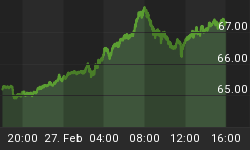Inquiring minds are investigating the ![]() Advance Monthly Retail Sales Report for August 2010, noting the discrepancy between what is reported and reality.
Advance Monthly Retail Sales Report for August 2010, noting the discrepancy between what is reported and reality.
The U.S. Census Bureau announced today that advance estimates of U.S. retail and food services sales for August, adjusted for seasonal variation and holiday and trading-day differences, but not for price changes, were $363.7 billion, an increase of 0.4 percent from the previous month, and 3.6 percent above August 2009.
Total sales for the June through August 2010 period were up 4.7 percent from the same period a year ago. The June to July 2010 percent change was revised from +0.4 percent to +0.3 percent .
Retail trade sales were up 0.5 percent from July 2010, and 3.7 percent above last year. Nonstore retailers sales were up 10.5 percent from August 2009 and gasoline stations sales were up 9.6 percent from last year.
As typical, Calculated Risk has some nice charts of the data.

Calculated Risk writes "This graph shows retail sales since 1992. This is monthly retail sales, seasonally adjusted (total and ex-gasoline). Retail sales are up 8.4% from the bottom, but still off 4.3% from the pre-recession peak."
Although that is what the data says, I don't buy it. If retail sales were back to within 4.3% of the pre-recession peak, sales tax collections would be back towards the pre-recession peak, if not exceeding the pre-recession peak.
Why might they exceed the peak? Because of numerous state sales tax hikes.
The Slow Rebound - Very Slow
September 02, 2010: State Tax Revenues Slowly Rebound, But ...
The Nelson Rockefeller Institute reports ![]() State Tax Revenues Are Slowly Rebounding. However, as always, the devil is in the details. Let's take a look.
State Tax Revenues Are Slowly Rebounding. However, as always, the devil is in the details. Let's take a look.
Preliminary tax collection data for the April-June quarter of 2010 show improvement in overall state tax collections as well as for personal income tax and sales tax revenue. However, revenue collections remain significantly below peak levels and are still weak in a number of states.
The Rockefeller Institute's compilation of data from 47 early reporting states shows collections from major tax sources increased by 2.2 percent in nominal terms compared to the second quarter of 2009, but was 17.2 percent below the same period two years ago.
State Tax Collections
Sales tax collections increased by 5.9 percent in the second quarter of 2010 compared to the same quarter of 2009, but were still 5.4 percent lower than two years ago. With 42 of 45 sales-tax states reporting so far, only seven states reported declines in sales tax collections compared with the same quarter last year.
Sales Tax Collections Down 5.9% June 2010 vs. June 2008
In spite of numerous sales tax hikes, tax collections are still 5.9% lower than two years ago. Moreover, June of 2008 was not the pre-recession peak. November of 2007 was the pre-recession peak.
Bear in mind the Rockefeller reports are from June and Calculated Risk's charts are for August, but that would barely dent the comparison, if at all.
The proper conclusion is that retail sales are down 10% or more from the pre-recession peak, especially if one factors in tax hikes.
Many states look at the Census report trying to figure out why their sales are lagging the national averages. The problem is the Census Bureau national averages are a blatant distortion of reality. The key to the states' conundrum is Census Bureau sampling methodology does not take into consideration stores that have gone out of business. Sales tax collections obviously do. Closed stores make no sales and collect no taxes.
Major Revision Coming?
I wonder how long it will take the Census Bureau to do a major revision, but as it sits, the retail sales report data is totally screwed up and paints a much brighter image of the "recovery" than has actually occurred.
In a genuine recovery, new stores would be opening and the data would be off in the other direction, with sales tax collections expanding faster than reported by the Census Bureau.
Where to From Here?
The number of store closings has probably peaked and that will make census reporting a bit more accurate going forward.
Currently all sign point to a renewed consumer slowdown. Thus, I suspect state tax collections will soon start to drop. With census bureau year-over-year comparisons starting to get more realistic, I expect to see that drop show up in the Census reports as well, even though the Census charts will remain totally screwed up from all the store closings in 2008-2009.

















